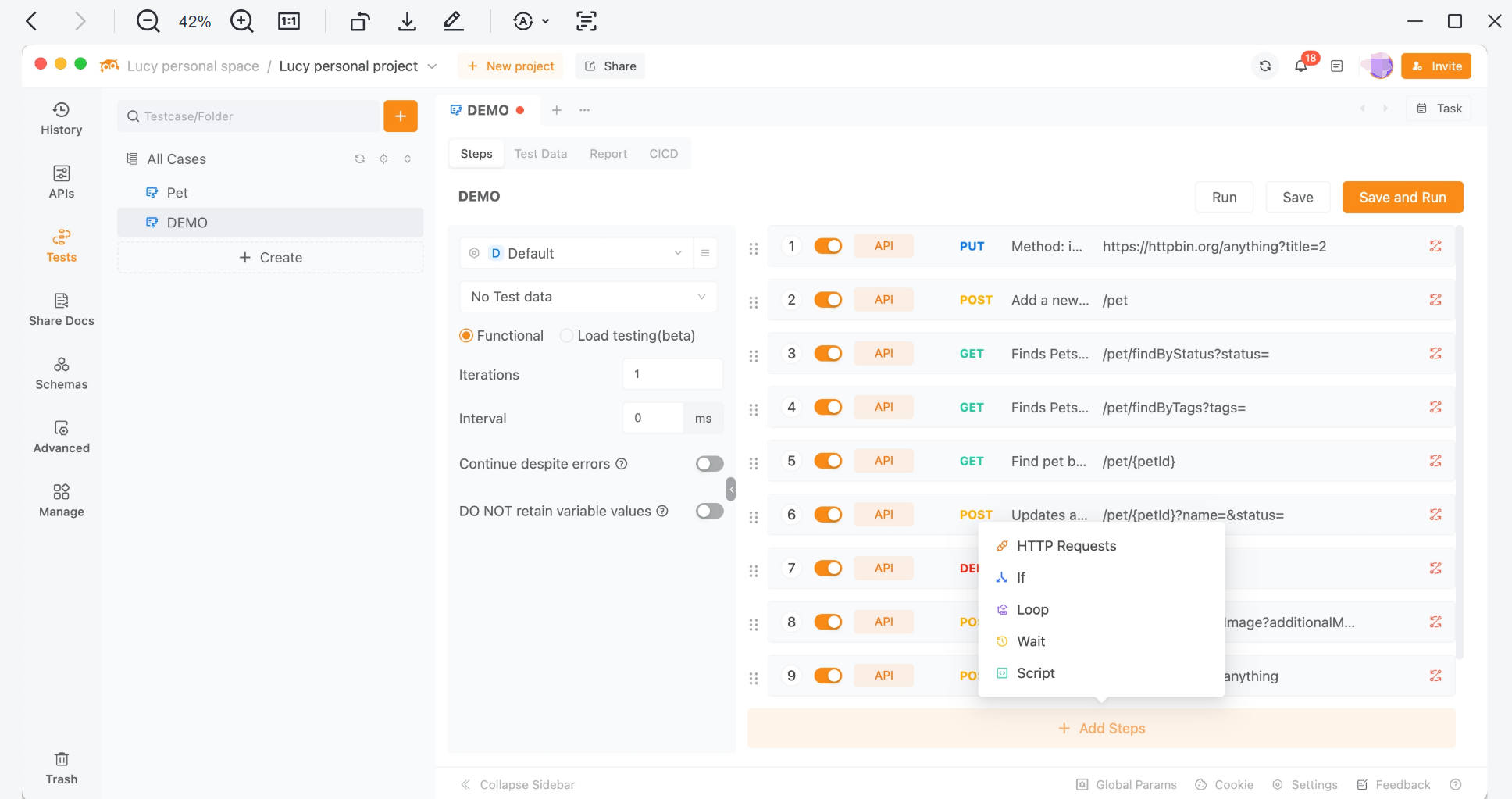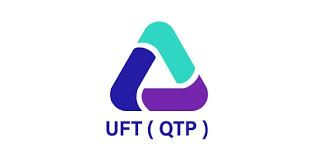The Most Popular Automated Testing Tools Ranking in 2025
Choosing the right automation testing tool is essential for improving software quality and streamlining the testing process. Whether it's web, mobile, or API testing, there are suitable solutions that can increase team efficiency and reduce manual errors.
Choosing the right automation testing tool is essential for improving software quality and streamlining the testing process. Whether it's web, mobile, or API testing, there are suitable solutions that can increase team efficiency and reduce manual errors. Automated testing tools are indispensable for ensuring the quality, efficiency, and reliability of software. With the rapid advancement of technology, the market is flooded with many options. Let's take a detailed look at the top 10 automated testing tools available today.
What is Automated Testing?
Automated testing represents a paradigm shift in software quality assurance, using technology to smooth and evolve the testing process. In this approach, specialized software tools are used to execute pre-scripted tests on applications and compare actual results with expected outcomes. By automating repetitive and time-consuming tasks, development teams can significantly improve efficiency, accuracy, and test coverage.
Main Concepts of Automated Testing:
- Test Automation Frameworks: Guidelines, coding standards, and a set of tools that facilitate the creation and execution of automated tests. Common frameworks include data-driven, keyword-driven, and hybrid approaches.
- Test Scripts: Program instructions that define test cases, including input data, expected results, and verification logic. These scripts can be written in various programming languages, such as Python, Java, or JavaScript.
- Test Data Management: The process of creating, maintaining, and providing test data to ensure comprehensive and realistic test scenarios.
- Continuous Testing: A practice of executing automated tests as part of the software delivery pipeline to provide rapid feedback on code changes.
Different Types of Automation Testing:
- Unit Testing: Validates individual components or functions of software in isolation.
- Integration Testing: Ensures that different modules or services work correctly together.
- Functional Testing: Verifies that the software meets specified functional requirements.
- Performance Testing: Assesses the system's responsiveness and stability under various load conditions.
- Security Testing: Identifies vulnerabilities and potential security risks in applications.
- User Interface (UI) Testing: Validates the visual elements and user interactions of an application.
Based on this knowledge, let's look at the best automation testing tools:
Top 10 Best Automation Testing Tools
1. EchoAPI
EchoAPI has emerged as a leader among automation testing tools, providing a comprehensive feature set that caters to the diverse needs of developers, testers, and QA professionals. Its user-friendly interface and powerful capabilities make it an ideal choice for API testing and development.

Main Features of EchoAPI:
- Real-time API Testing: EchoAPI allows users to send real-time HTTP requests to APIs and provides immediate feedback on API functionality. This feature enables developers to quickly identify and resolve issues during the development process.
- Intuitive User Interface: This platform boasts a clean and intuitive interface that simplifies the API testing process. Even for those new to API testing, the tool is easy to use, reducing the learning curve and increasing productivity.
- Advanced Parameter Customization: EchoAPI offers extensive customization options for request parameters. Users can manipulate headers, query parameters, and request bodies to easily set up complex test scenarios and ensure thorough coverage of API functionalities.
- Robust Request and Response Verification: This tool provides powerful verification features for both requests and responses. Users can set up assertions to verify the behavior of APIs, data integrity, and performance metrics, ensuring that APIs meet specified requirements.
- Compatibility with Various Formats: EchoAPI supports a wide range of data formats, including JSON, XML, and form data. This versatility allows testers to work with various API types and structures, accommodating diverse project requirements.
- Automated Testing Suites: Users can create and manage automated testing suites within EchoAPI. These suites can be scheduled to run at specific intervals or triggered as part of a CI/CD pipeline, ensuring continuous API quality assurance.
- Mock Server Feature: EchoAPI includes a mock server feature that allows developers to simulate API responses. This is particularly useful for front-end developers who can start working before the backend API is fully implemented.
- Collaborative Workspace: The platform offers collaborative features that allow team members to share API collections, test cases, and results. This improves communication and coordination between development and QA teams.
- API Documentation Generation: EchoAPI automatically generates API documentation based on defined endpoints and test cases, ensuring that documentation stays up-to-date with the latest API changes.
2. Selenium
Selenium is one of the widely used automation testing tools for web applications. It supports multiple programming languages, including Java, C#, and Python, making it versatile for developers. Selenium enables browser automation, allowing testers to simulate user actions and effectively validate the functionality of web applications.

Main Features:
- Cross-browser compatibility: Works on Chrome, Firefox, Safari, and more.
- Integration capabilities: Easily integrates with frameworks like TestNG and JUnit.
- Supports various platforms: Can be used on Windows, macOS, and Linux.
3. Postman
Postman is widely recognized for its ease in API development and testing. It offers a robust platform for creating, testing, and documenting APIs.

Main Features:
- Intuitive user interface: Simplify the process of creating and executing API requests.
- Automation testing: Write tests in JavaScript and automate the validation of API responses.
- Collaboration tools: Teams can share collections and environments, strengthening teamwork.
4. SoapUI
SoapUI is an open-source tool specifically designed for API testing. Users can test REST and SOAP web services, ensuring APIs function correctly.

Main Features:
- Functional testing: Provides comprehensive testing capabilities for APIs.
- Load testing: Simulates heavy loads to test API performance under stress.
- Data-driven testing: Supports testing with various datasets to verify API responses.
5. Cucumber
Cucumber is an automation testing tool that supports Behavior-Driven Development (BDD). Testers can write tests in plain language, making it accessible to non-technical stakeholders.

Main Features:
- Gherkin syntax: Allows testers to write tests in a human-readable format.
- Integration with various programming languages: Supports Java, Ruby, and more.
- Facilitates collaboration: Promotes communication between developers, testers, and business analysts.
6. Appium
Appium is an open-source tool for automating mobile applications. It supports both Android and iOS platforms, making it an excellent choice for mobile application testing.

Main Features:
- Cross-platform support: Write tests once and run them on multiple platforms.
- No code changes required: Test on actual devices without modifying application code.
- Strong community support: An active community provides plugins and integrations to enhance functionality.
7. QTP/UFT
QuickTest Professional (QTP), now known as Unified Functional Testing (UFT), is a comprehensive automation testing tool for functional and regression testing, especially effective for enterprise applications.

Main Features:
- GUI testing: Automates the testing of graphical user interfaces across various applications.
- Supports multiple protocols: Tests web, mobile, and desktop applications.
- Data-driven testing: Ensures robust test coverage using multiple datasets.
8. JUnit
JUnit is a widely used testing framework for Java applications, particularly popular for unit testing, allowing developers to test each component of their code.

Main Features:
- Annotations: Simplify test creation with annotations for setup, teardown, and test methods.
- Integration with build tools: Seamlessly works with Maven and Gradle, enabling continuous integration.
- Extensive community support: A large community provides resources and plugins to enhance functionality.
9. TestComplete
TestComplete is a powerful automation testing tool that supports a variety of applications, including desktop, mobile, and web. Its user-friendly interface allows even those with limited technical knowledge to create automation tests.

Main Features:
- Record and playback functionality: Records user actions to quickly create tests.
- Keyword-driven testing: Supports keyword-based test creation to simplify test management.
- Comprehensive reporting: Provides detailed reports and analysis on test results.
10. Katalon Studio
Katalon Studio is an all-in-one automation testing solution that supports web, API, mobile, and desktop applications. It combines powerful features with an intuitive interface, suitable for both beginners and experienced testers.

Main Features:
- Built-in keywords: Provides a library of built-in keywords for simple test creation.
- Integration with CI/CD tools: Works seamlessly with tools like Jenkins and Git, enabling continuous delivery.
- Extensive reporting: Offers detailed execution reports and analysis for better decision-making.
Best Practices for Automation Testing:
- Prioritize test cases based on important business functionalities and high-risk areas.
- Implement version control for test scripts to track changes and promote collaboration.
- Use descriptive and meaningful names for test cases and functions.
- Regularly review and refactor test code to maintain readability and efficiency.
- Implement proper error handling and logging mechanisms in test scripts.
- Integrate automated testing with CI/CD pipelines for continuous quality assurance.
By adopting automated testing, organizations can accelerate development cycles, improve software quality, and ultimately provide more value to users. As the complexity of software systems increases, automated testing plays an increasingly vital role in ensuring reliable and high-performance applications.
Conclusion
The selection of the most suitable automation testing tools is crucial for improving software quality and streamlining the testing process. Each tool in this list offers its own unique features and capabilities to address different testing needs.
Whether focusing on web applications, mobile, or API testing, there is a solution that fits the requirements. By leveraging these automation testing tools, teams can increase efficiency, reduce manual errors, and quickly deliver high-quality software products.









 EchoAPI for VS Code
EchoAPI for VS Code

 EchoAPI for IntelliJ IDEA
EchoAPI for IntelliJ IDEA

 EchoAPl-Interceptor
EchoAPl-Interceptor

 EchoAPl CLI
EchoAPl CLI
 EchoAPI Client
EchoAPI Client API Design
API Design
 API Debug
API Debug
 API Documentation
API Documentation
 Mock Server
Mock Server




